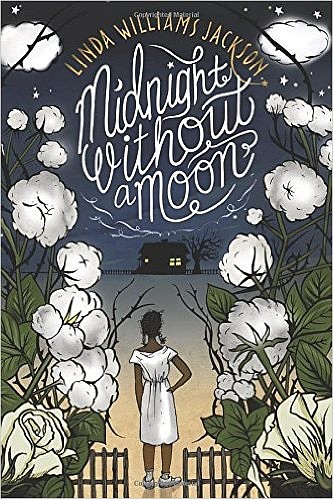In 1955, on a sultry summer day in Money, Mississippi, a young African-American boy from Chicago may have whistled at a white woman. Stories are many and varied regarding the actual events of those few minutes that passed so quickly on Aug. 28. However, for Emmett Till, those few minutes would ignite the outrage that would lead to his brutal murder.
Roy Bryant, the white woman's husband, and a few friends, would walk into the home of Emmett Till's uncle and force the boy to leave with them. After beating Emmett nearly to death, they gouged out his eye, shot him in the head and threw his body in the river after wrapping barbed wire around his neck and attaching his body to a 75-pound cotton gin fan.
That was the world of the 1950s Jim Crow South.
In Linda Williams Jackson's "Midnight Without a Moon," a young African-American girl struggles to understand and grow into her rights and responsibilities while dealing with her own personal heartaches and dreams during the summer of the death of Emmett Till.
Rose Lee Carter grew up with the perception being black made you less. At 13, Rose sees not only is black skin a physical barrier to freedom and advancement but the darker the skin, the worse you are treated. With skin as black "as midnight without a moon," Rose is treated contemptuously by whites and other blacks, too. Simply paging through the pictures of "Jet" magazine, an African-American publication, teaches lighter skin equals beauty, power and opportunity.
When her grandfather loses his farm helpers, it is midnight-skinned Rose who must drop out of school to stay home and work the cotton fields. Rose's cousin, with her caramel-colored skin, is allowed to skip all field work as it is more likely to harm her. Jackson, an African-American author born in Mississippi, paints a picture of the segregation amongst her own race that caused harm even within the safer society of those already marked as less than fully human in society.
Whispers worm their way through Rose's summer worries. Low-pitched voices discuss words of hate and fear such as "lynching." A friend of Rose's is shot on the steps of the courthouse when he attempts to register to vote. Rose is torn in two directions as her grandma faces off against the efforts of Rose's aunt who drives down from St. Louis to help with the NAACP's efforts in the Till case. Rose's grandma complains the NAACP will get the white people riled up and only hurt the black people trying to live out their lives.
"Colored folks just oughta stay in their place. It'd keep us outta a whole lotta trouble. One Negro do something, white folks get mad at everybody." While Rose can see the truth in her grandma's words, she yearns toward her aunt's conviction the world can change. "In my heart," Rose realizes, "I wanted to be brave."
Amidst a time of racial turmoil, restlessly pushing toward changes that would start America on the long-overdue path toward equality, Rose Carter struggles to find her own faith and beliefs in a tiny Mississippi town. "Midnight Without a Moon" is written in a tone of natural candor and frankness, yet its message is eloquent. The reasoning of a child unravels a seemingly complex situation into its most simplistic truths.
Mariah Luebbering is the children and reference clerk at Missouri River Regional Library.

